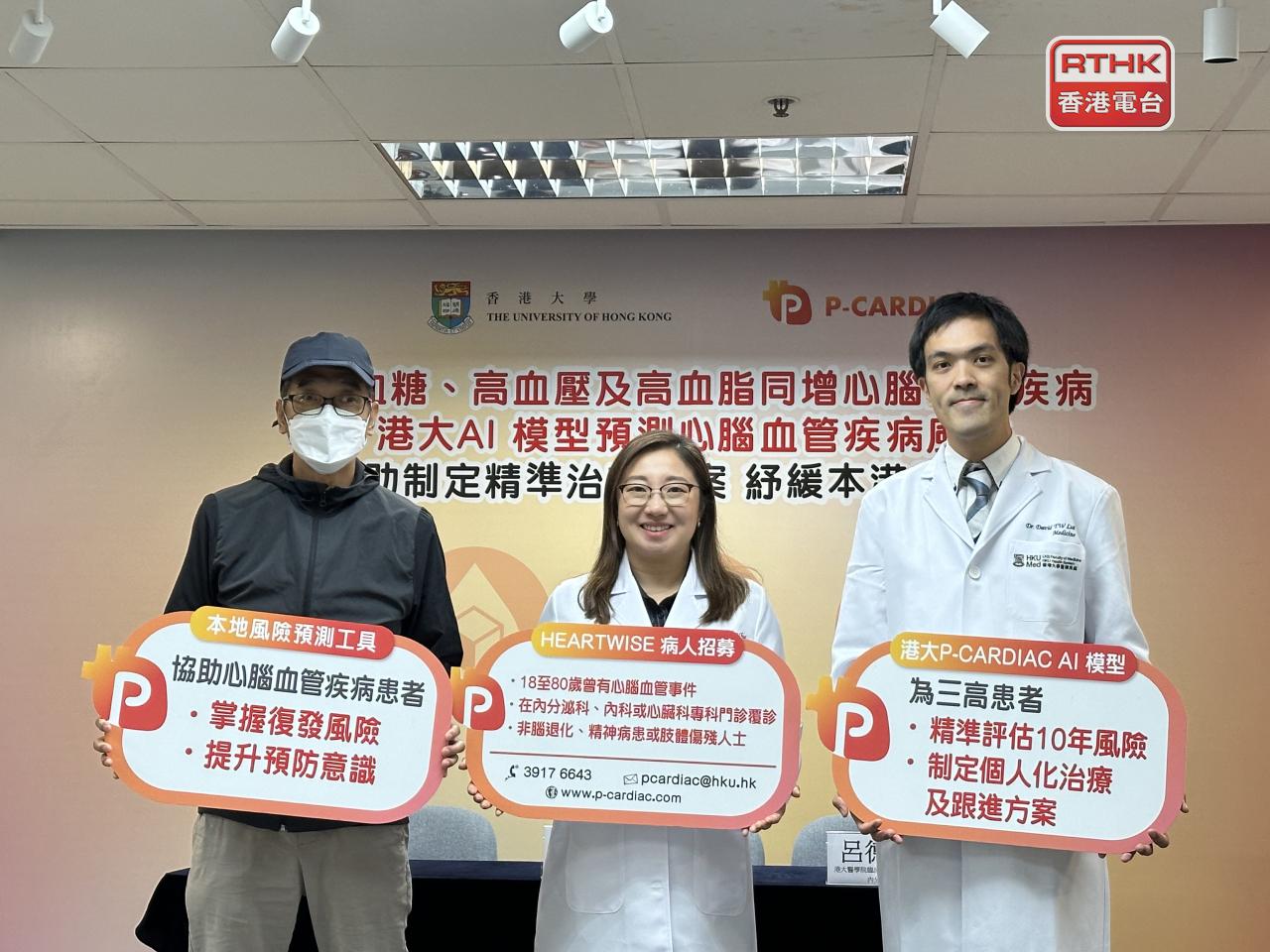Patients suffering from the so-called "three highs" – high blood pressure, blood sugar and blood lipids – face more than a 70 percent risk of recurrent major adverse cardiovascular events within 10 years, University of Hong Kong researchers said on Sunday.
The team assessed about 1,250 patients who have conditions of heart diseases and have suffered strokes in a study named "HEARTWISE" launched last year, aiming to enhance the accuracy of an AI-powered cardiovascular risk assessment model P-CARDIAC.
The study also found that stroke survivors have a 74 percent risk of subsequent cardiovascular events within a decade.
“Blood glucose would be harmful to your blood vessels. It would harm the vessels wall and that would increase the risk of damage to it," said assistant professor Celine Chui, who heads the research.
"When there's very high pressure in the blood vessels, it would also increase the damage to the vessels, and that would increase the risk of cardiovascular diseases.
"Moreover, having high cholesterol, mainly the low density lipoprotein, the LDL cholesterol – that's the type of bad cholesterol – it would actually accumulate in your vessels wall, which would reduce the diameter, the size where blood smoothly flows in the blood vessels."
Chui called on both the city’s public and private healthcare systems to use the model – which consists of about 13 million patient records from the Hospital Authority – to help predict major cardiovascular event risks and develop personalised treatment plans.
"I envision that the risk of the occurrence of recurrent cardiovascular risk would be reduced. This is not because P-CARDIAC itself is a treatment, but as a tool that would facilitate the communication between clinicians and patients," she said.
Chui also said she hopes to have the system incorporated into the public medical system in the next one to two years, adding that her team is willing to provide the system free-of-charge.
But she noted that more participants are needed in their ongoing study to showcase the AI-model’s reliability.
One in every five deaths in Hong Kong is caused by cardiovascular diseases or stroke, according to the Department of Health.





